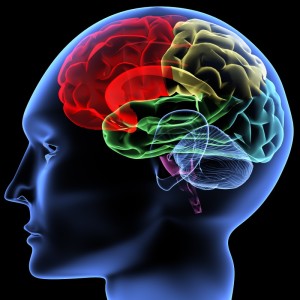Over the past six months, I have been attending practitioner training’s and conferences to learn all I can about the brain and why our memory and overall brain performance starts to slip. I did not expect there to be a simple answer. After all, a drug that prevents Alzheimer’s Disease (AD) would have been invented by now if the answer was easy. But nonetheless, my calling is to help all people preserve their precious brain function, including memories. I just don’t want to bear witness to another member in my family being diagnosed with AD, and don’t want to see anyone else go through this traumatizing experience either.
As the incredible Dr. Dale Bredesen has outlined in his research, there are multiple “types” of AD. It is our responsibility to figure out what is driving the neurodegeneration in each person. Is it inflammation, insulin resistance in the brain, low hormone levels, nutrient deficiencies, toxins that have crossed the Blood Brain Barrier, or a vascular issue?
As I attended these training’s and conferences, I observed that the experts in this field mentioned several key supplements over and over again for optimal brain support and to help reverse cognitive decline. So here are the five top supplements I suggest to support your brain for optimal performance and cognitive function:
- Acetyl L-Carnitine is the acetylated ester of L-carnitine. It participates in cellular energy production and in the maintenance of neurons. It also repairs neuronal damage. In a nutshell, research shows that Acetyl L- Carnitine helps to energize the brain, increase levels of important neurotransmitter chemicals needed for memory and focus, and repair the damage done to brain cells by stress and poor nutrition.
- Phosphatidyl Serine (PS) is a nutrient essential for optimal brain function. Because PS is crucial for the overall health of brain cells, research on PS has shown that it benefits a wide range of brain activities such as mental focus, memory recall, and performance on tasks. PS helps neurons talk to each other, which is essential for memories to be both formed and recalled.
- High DHA fish oil: DHA is a structural molecule in all cell membranes, including neuronal membranes. DHA is a precursor to docosanoids, which have anti-inflammatory, immune regulatory and protective actions in the context of various inflammatory responses. Optimal DHA status may be associated with a lower risk of dementia. See UltraDHA for an example of a high quality and high potency DHA fish oil.
- Curcumin has been shown to decrease inflammation throughout the body, including the brain! Curcumin reduced development and severity of AD in animal models by reducing plaque aggregation and plaque induced oxidative stress. (1) Curcumin is also protective to the heart, the liver and the gut. It also helps decrease allergies and is great at reducing joint pain! Note: most forms of supplemental curcumin are poorly absorbed. CurcumEvail has demonstrated superior absorption in plasma.
- Huperzine A is a natural cholinesterase inhibitor (inhibits the acetylcholinesterase enzyme from breaking down acetylcholine, thereby increasing the levels of the neurotransmitter acetylcholine). It is derived from the Chinese herb Huperzia serrata. In the brain, acetylcholine functions as a neurotransmitter and a neuromodulator. It plays an important role in arousal, attention, memory and motivation. There is evidence that huperzine A may compare favorably in symptomatic efficacy to cholinesterase inhibitors currently in use. In addition, huperzine A has antioxidant and neuroprotective properties that suggest that it may be useful as a disease-modifying treatment for Alzheimer’s disease (AD).
Suggested doses of these above mentioned supplements depend on whether you are using them for optimal brain performance or to help reverse mild cognitive decline. Please set up a strategy session with me if you are concerned that your brain is not functioning optimally and you are ready to take a preventative approach to cognitive decline! Remember, Alzheimer’s Disease does not suddenly start when you are 60 or 70 years old. Dr. Dale Bredesen recommends taking a preventative approach starting at age 40! Please see my previous blog “Are You Afraid of Getting Alzheimer’s Disease?”
Reference:
- Baum L, Ng A. Curcumin interaction with copper and iron suggests one possible mechanism of action in Alzheimer’s disease animal models. J Alzheimers Dis. 2004 Aug;6(4):367-77.


